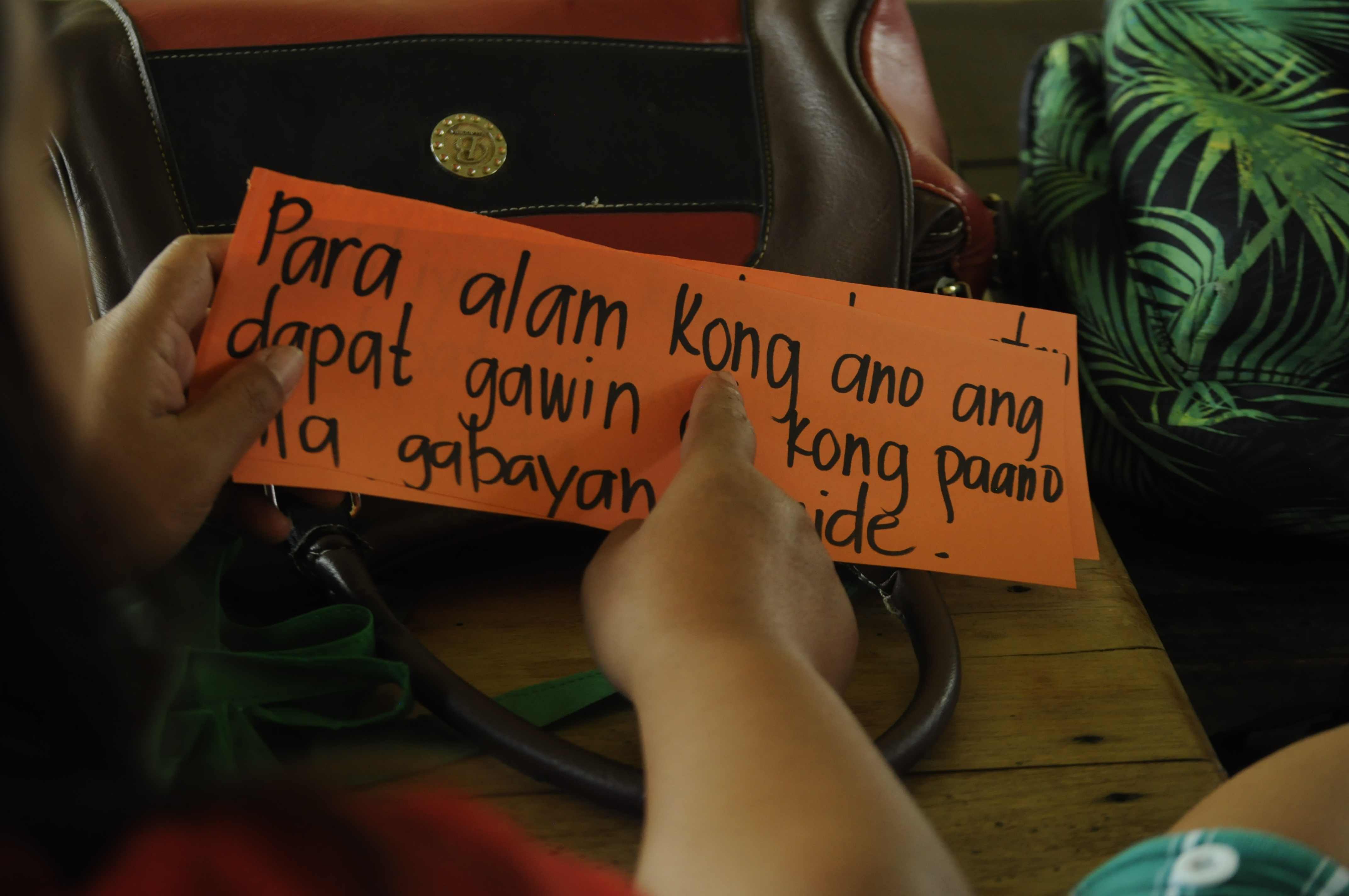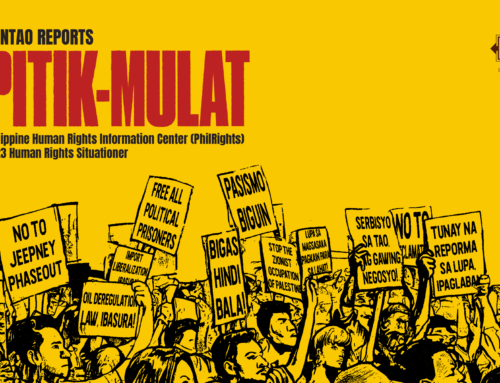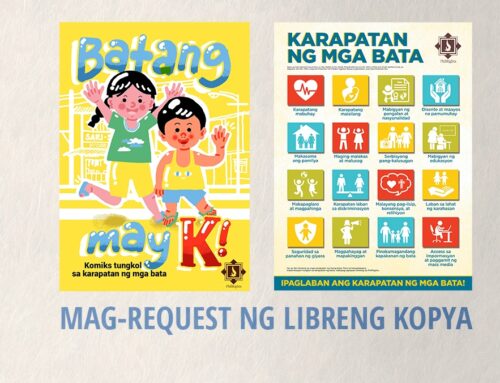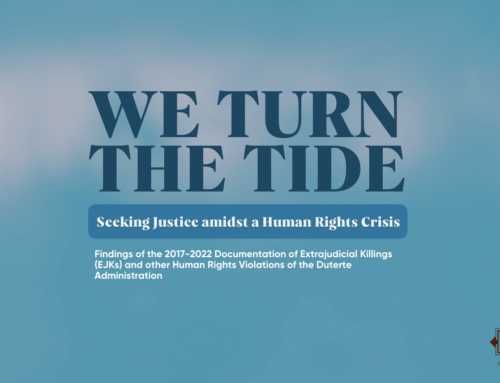By PhilRights Staff
Advocating for children’s rights is about involving children in the goal of transforming societies. Both adults and children have to be educated and guided towards this direction. Our work in this area usually starts by collecting our participants’ perceptions about children first. What’s interesting, however, is that adults have surprisingly limiting views about the children in their lives.
Faced with the question Anu-ano ang mga karaniwang paniniwala, pag-uugali at pag-tingin sa mga bata sa inyong komunidad? (What are the common beliefs, attitudes and views about children in your community?), adults frequently focused on negative notions about children. In our educational activities, adults would invariably describe children as lazy, self-centered, disrespectful, and obsessed with electronic gadgets. Adults often use their own childhood experiences as reference, saying that children today are less disciplined compared to how they were as kids.
Children are to be seen in a new light, one that seeks to understand their diverse situations, special needs and contribution to their own development
Succeeding discussions revealed that there was a disconnect, both in terms of personal relationships and forms of communication, between the adults and children in the community.
Our recommendations to the community members focus on encouraging more open communication between adults and children. However, open communication must also come with a change in adults’ views on children. This new perception, ideally, sees children’s unique ways of expression, their particular interests, needs and capacities, and their potentials as active members of the community. In short, children are to be seen in a new light, one that seeks to understand their diverse situations, special needs and contribution to their own development.
This sounds straightforward enough, but any change in opinion and belief has to be rooted in the recognition that their earlier perceptions are not working. Our main task as Children’s Rights educators, then, is offering creative solutions so that our participants – both adults and children – can better appreciate lessons on Children’s Rights.

It might take some time to reach this level of change in our partner community. Advocating for a community that respects and fulfill Children’s Rights will need the recognition of the responsibility of all adults as well as the responsibilities of the children. By the end, we hope to contribute to a formation of a society that respects the Rights of everyone, regardless of class, gender, ethnicity, especially age.








